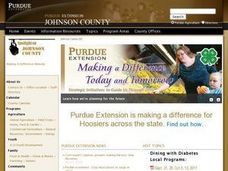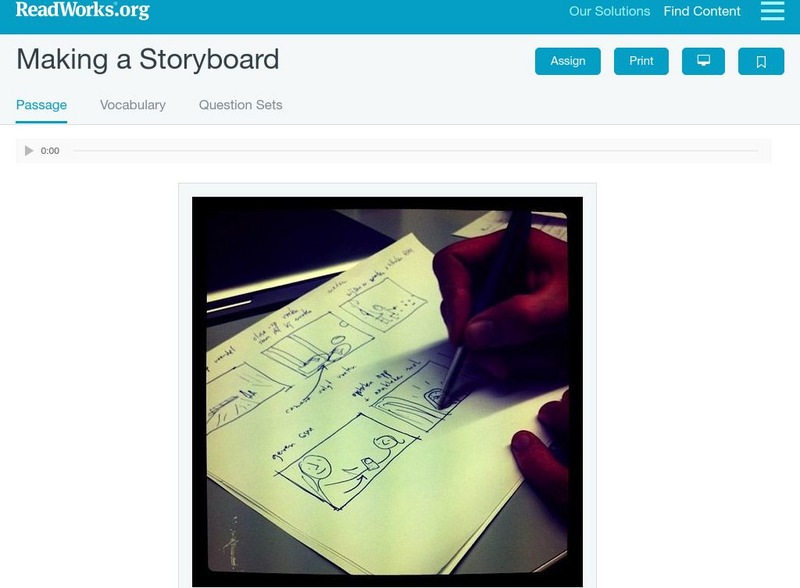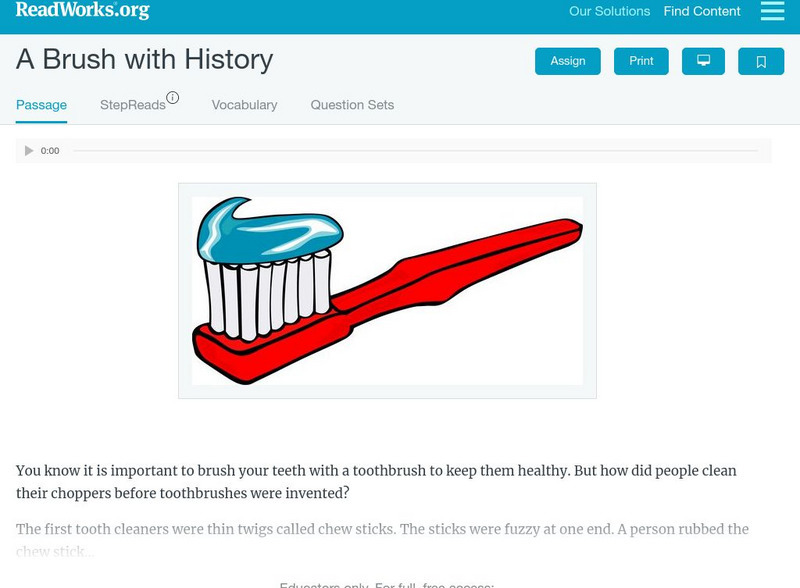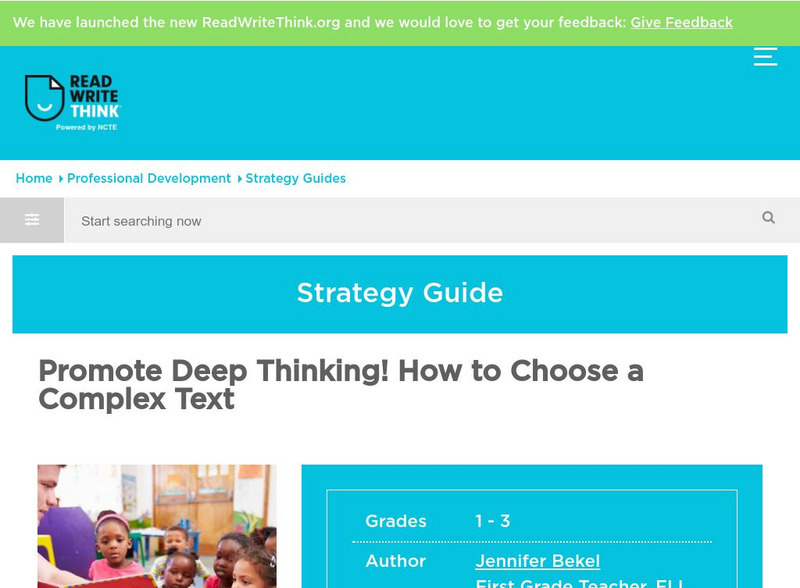Pace University
Community Helpers
Differentiate instruction with a unit focused on community helpers. A pre-assessment levels scholars into three groups. Learning contracts offer participants the choice of activities to complete and show what they know about specific...
Curated OER
No Foot, No Horse
Why do horses wear shoes? Why do people wear shoes? Using worksheets, which are embedded in the plan, learners write descriptive paragraphs about their own shoes, classify a pile of shoes, and also engage in math games about the variety...
Curated OER
Presenting Information
How do you make a pizza? Scholars examine a recipe for one of their favorite dishes. After reading the eight steps, they must re-write the steps in order. Although this offers great printing practice, younger writers may find the narrow...
Curated OER
Graphing Memories
Mem Fox’s Wilfrid Gordon McDonald Partridge provides the labels for a graphing activity. Class members create an illustration of a memory item brought from home, and place their illustration in the proper column of a graph. When the...
Curated OER
Distinguish Fact from Opinion in Passage
Is it a fact or is it an opinion; readers need to know. Second graders learn a new technique to determine if a sentence or reading passage is fact based or opinion based. They read and then ask evidence based questions to determine if...
Alabama Learning Exchange
The Moon
Young scholars explore the phases of the moon. In this solar system lesson plan, students listen to several books about the moon including The Moon Book by Gail Gibbons. Young scholars complete a KWL activity concerning the phases of the...
Scholastic
Mixed Bags: Fiction and Nonfiction
Using a bag with one fiction and non-fiction book of similar topics, partners work together to find the differences and similarities of each story. They record their obervances in a T-chart.
Curated OER
Mighty Oaks from Little Acorns
What does it mean to grow? To germinate? For the plan detailed here, class members investigate the growth process of an oak tree while focusing on the beginning stages of planting and germination. They plant seeds and record observations...
Curated OER
Make Mine Turkey
Young scholars compare foods available for the Pilgrims' Thanksgiving with contemporary Thanksgiving foods. After reading information about the first Thanksgiving, pupils create a menu and compute the cost of a turkey dinner, using...
Curated OER
Bee Dance
Everything a bee does serves a purpose. Learners in grades one through five explore the behaviors of bees through reading and dramatic puppet play. First children will create honey bee puppets, then they will discuss how bees dance to...
Curated OER
Plant Parts We Eat
I bet the kids in your class will love to eat their vegetables after an engaging lesson plan about edible plants. They read information about vegetables and edible plants, sort vocabulary words, identify plant parts, measure and graph...
Curated OER
Lesson 3: Encyclopedias
After being introduced to non-fiction texts, second graders meet a different type of non-fiction text that can help them locate factual information. They discuss and examine all of the features found in typical encyclopedias such as,...
Curated OER
Lesson 2: Distinguish Fact from Opinion in Books
An important part of reading informational text is being able to discern fact from opinion. The class reads chapter one from the book, Penguins by Lynn M. Stone. They analyze specific sections of the text to determine if what is being...
Curated OER
Sorting in More than One Way
Sorting, categorizing, and classifying are skills learners must master for many different reasons. The class will work in small groups to list, classify, and sort a stack of familiar books. The neat part about the lesson plan is that the...
Curated OER
Lesson 4: Text-to-World Connections
Making connections to the text you're reading may help build a deeper appreciation and understanding of the material. Second graders practice making text to self and text to life connections as they read two passages; one about Martin...
Curated OER
Agriculture in Motion
Youngsters learn about simple machines that could be used on a farm. They learn about agricluture, listen to a farmer speak, compare and contrast different farm machines, and then design their own. Note that although the publisher...
Curated OER
Dinosaur Reading Comprehension
What is more interesting than a dinosaur; three dinosaurs! Second graders hone their reading comprehension skills by learning about the T-Rex, Pachycephalosaurus, and diplodocus. They read three short paragraphs and answer three...
Curated OER
Bread in a Bag
This lesson focuses on making bread, but also spends some time on the origins of wheat. In order to make the bread, each class member receives a kit full of the materials they will need. Included here is a detailed list of instructions...
US Department of Education
U.s. Dept. Of Education: Compact for Reading: First Grade Activities (Spanish)
Links to 100 first grade activities arranged by skill set and designed to improve reading and writing. All activities are in PDF format and are ready to print and use. They can be downloaded individually, according to skill set, or as...
Read Works
Read Works: Passages: Making a Storyboard
[Free Registration/Login Required] Students read a nonfiction text about a girl whose aunt is a children's book author and answer questions about comprehension, sequencing, supporting details, main idea, vocabulary, and more. Links to a...
Read Works
Read Works: Passages: Grade 2: A Brush With History
[Free Registration/Login Required] Students read a non-fiction article about the history of a toothbrush and answer questions in comprehension, sequencing, inferences, main idea, transitions, and more. A link to paired text questions is...
ReadWriteThink
Read Write Think: Promote Deep Thinking! How to Choose a Complex Text
This is a strategy guide to determine if reading material is complex and therefore, worth a close reading. It offers a list of quantitative, qualitative, reader characteristics/task consideration measures of text complexity.
Reading Rockets
Reading Rockets: 103 Things to Do Before/during/after Reading
The highly-respected Reading Rockets program offers both teachers and students a toolkit of ways to connect more actively with the materials they read. Some of these techniques are specifically for fiction-reading, others are designed...

























